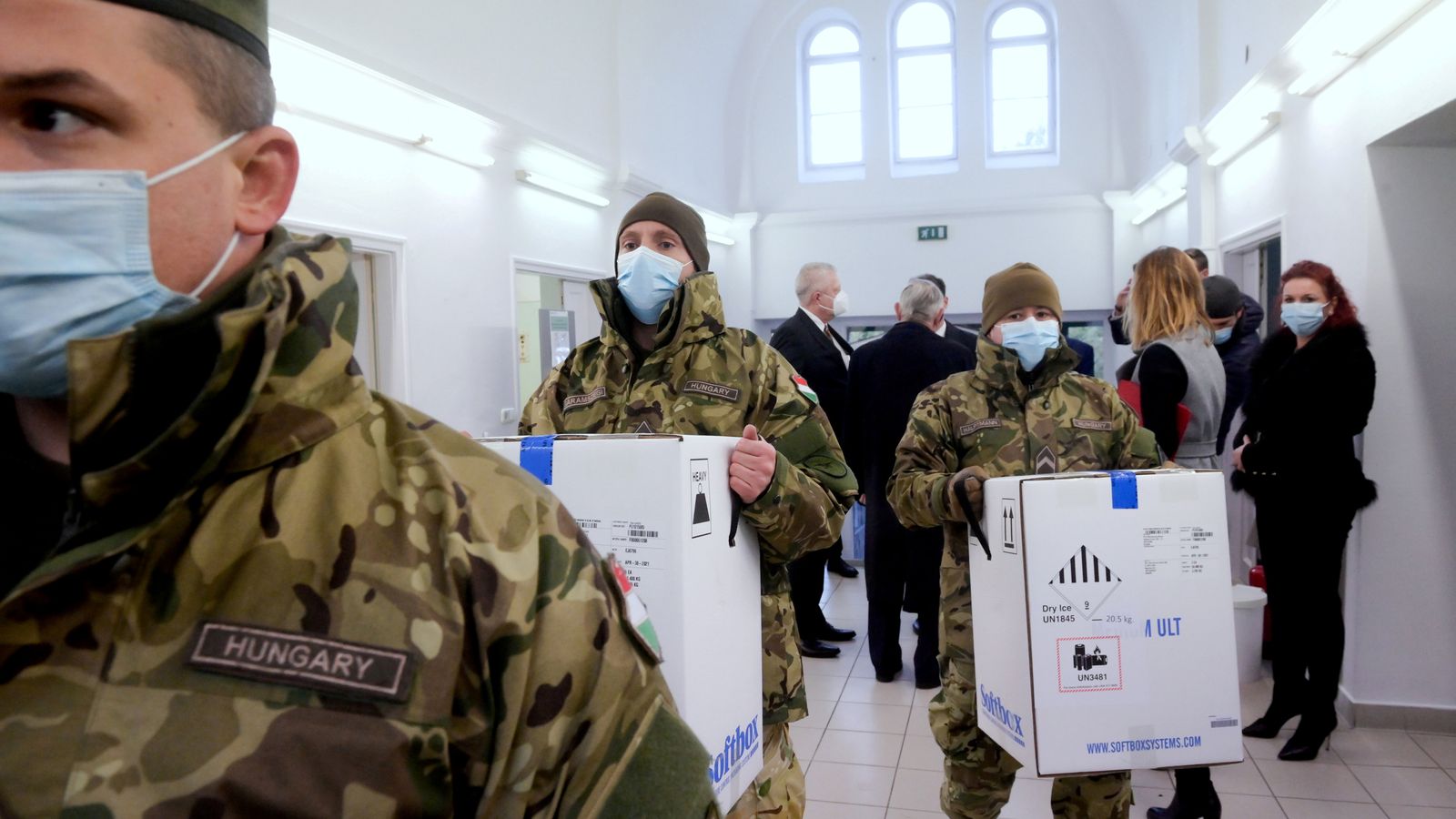Europe has launched a vaccination programme that it hopes will end the coronavirus pandemic and allow a return to normal life.
The European Medicines Agency approved the Pfizer/BioNTech vaccine on 21 December and the aim is for all adults to be vaccinated by the end of 2021.
Some countries have called on doctors and nurses to come back from retirement to help the vaccination effort, while some have trained people from other occupations to assist.
European governments are promoting the vaccine as the continent’s best chance to return to normal life, with European Commission President Ursula von der Leyen saying: “Vaccination is the lasting way out of the pandemic”.
German Health Minister Jens Spahn said on Saturday. “This vaccine is the decisive key to end this pandemic…the key to getting our lives back.”
The EU nations have recorded at least 16 million coronavirus infections and more than 336,000 deaths, although real numbers are likely to be higher due to limited testing particularly early on in the pandemic.
The 27-country bloc had planned a coordinated rollout on Sunday but Hungary, Germany and Slovakia couldn’t wait and instead began vaccinating people on Saturday.
Subscribe to the Daily podcast on Apple Podcasts, Google Podcasts, Spotify, Spreaker
In Hungary, vaccinations started with frontline health workers at hospitals in Budapest.
In Germany, officials concentrated on care home residents.
Tobias Krueger, operator of a nursing home in the northeast German region of Saxony-Anhalt, said: “Every day that we wait is one day too many.”
The first person to be vaccinated at that home was Edith Kwoizalla, 101, and Mr Krueger said 40 of the home’s 59 residents and 10 of the 40 workers wanted the vaccine.
The first person to get the vaccine in Slovakia was an infectious diseases expert, Vladimir Krcmery.
The 60-year-old was vaccinated along with doctors at a hospital in the city of Nitra, described by Health Minister Marek Krajci as a “historic moment”.
France received its first shipment of the vaccine on Saturday and said it would prioritise the elderly.
In Italy, temporary solar-powered healthcare pavilions will be built in town squares and in Spain the first doses will be given at a care home in the central city of Guadalajara.
In Poland, the first two people to be vaccinated on Sunday will be a nurse and a doctor at the Interior Ministry hospital in Warsaw, followed by medical workers in other hospitals.
The country’s prime minister Mateusz Morawiecki said getting vaccinated was a patriotic duty.
In Bulgaria, the first person to get the jab will be Health Minister Kostadin Angelov, who has promised a campaign to promote the vaccine’s benefits. Both Bulgaria and Poland have a high level of suspicion surrounding the vaccines.
In Croatia, the first recipient will be a nursing home resident in the capital city of Zagreb on Sunday morning and Portugal will create separate cold storage units to get the vaccine to the archipelagos of Azores and Madeira.
